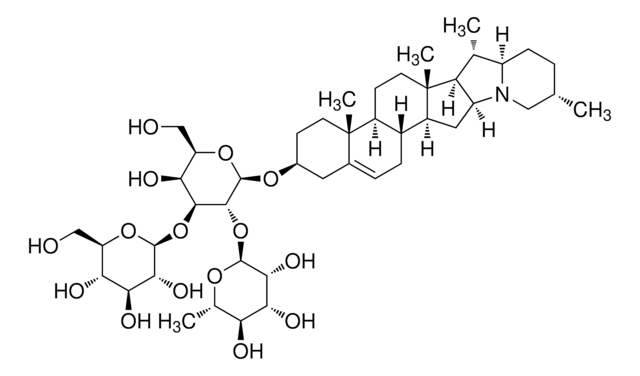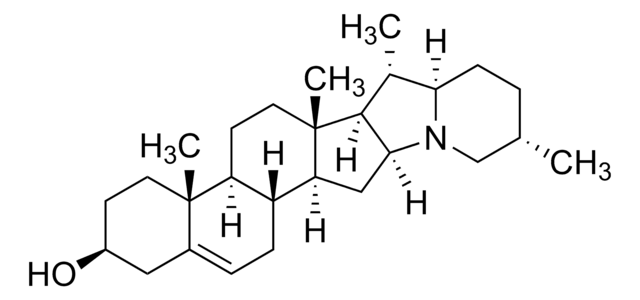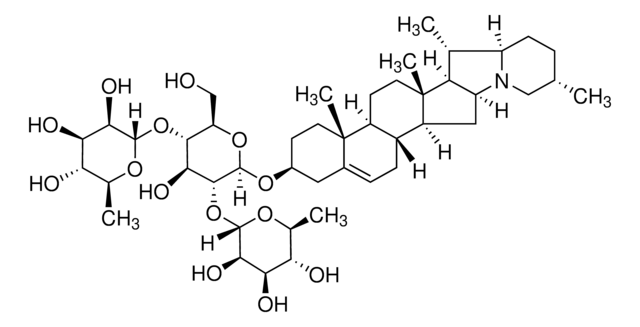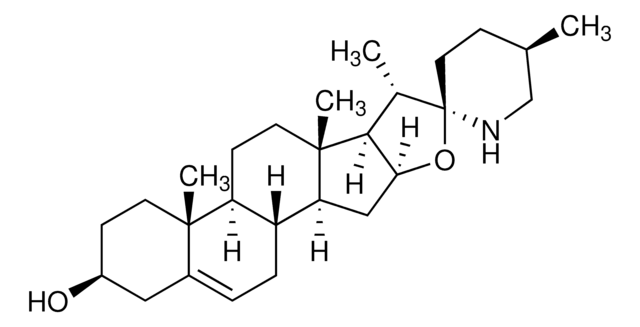13264
Solanidine
≥97.0% (HPLC)
Synonym(s):
(3β)-Solanid-5-en-3-ol, Solatubine
About This Item
Recommended Products
Quality Level
Assay
≥97.0% (HPLC)
form
powder or crystals
technique(s)
HPLC: suitable
storage temp.
room temp
SMILES string
C[C@H]1CC[C@@H]2[C@@H](C)[C@H]3[C@H](C[C@H]4[C@@H]5CC=C6C[C@@H](O)CC[C@]6(C)[C@H]5CC[C@]34C)N2C1
InChI
1S/C27H43NO/c1-16-5-8-23-17(2)25-24(28(23)15-16)14-22-20-7-6-18-13-19(29)9-11-26(18,3)21(20)10-12-27(22,25)4/h6,16-17,19-25,29H,5,7-15H2,1-4H3/t16-,17+,19-,20+,21-,22-,23+,24-,25-,26-,27-/m0/s1
InChI key
JVKYZPBMZPJNAJ-OQFNDJACSA-N
Looking for similar products? Visit Product Comparison Guide
Biochem/physiol Actions
Packaging
Signal Word
Warning
Hazard Statements
Precautionary Statements
Hazard Classifications
Acute Tox. 4 Oral - Aquatic Chronic 4 - Repr. 2
Storage Class Code
11 - Combustible Solids
WGK
WGK 3
Choose from one of the most recent versions:
Already Own This Product?
Find documentation for the products that you have recently purchased in the Document Library.
Our team of scientists has experience in all areas of research including Life Science, Material Science, Chemical Synthesis, Chromatography, Analytical and many others.
Contact Technical Service









